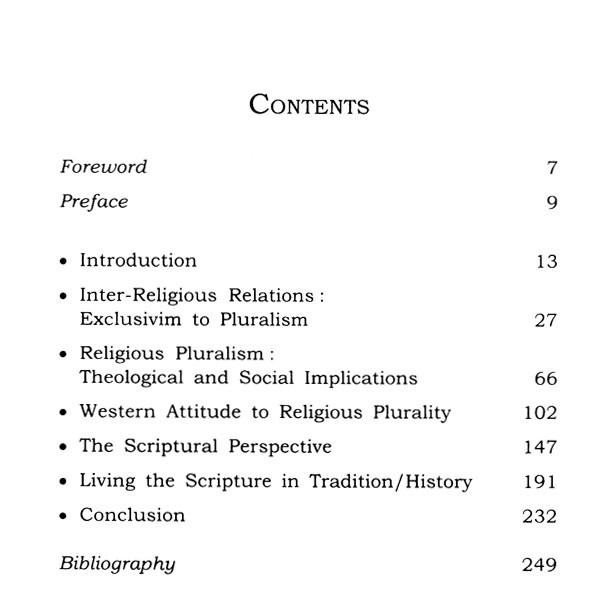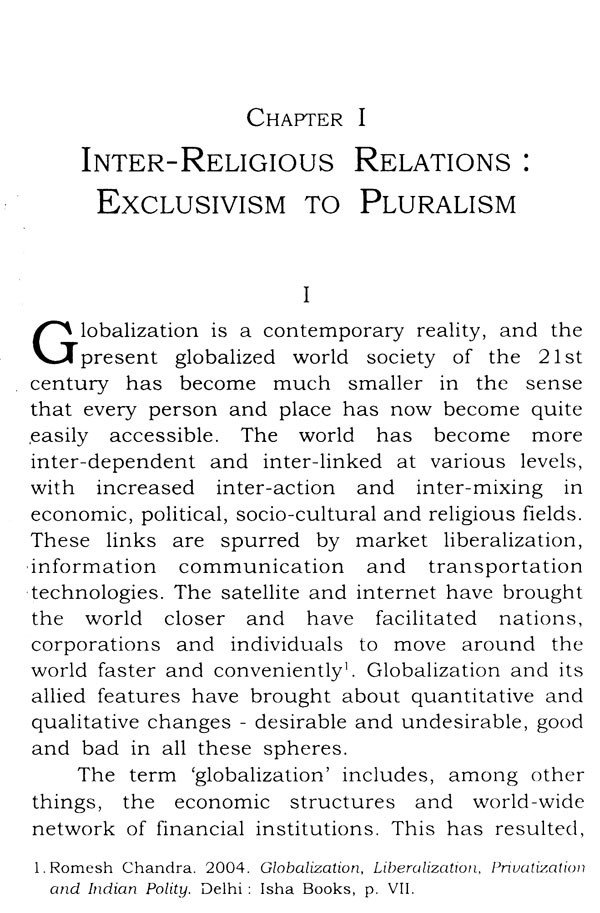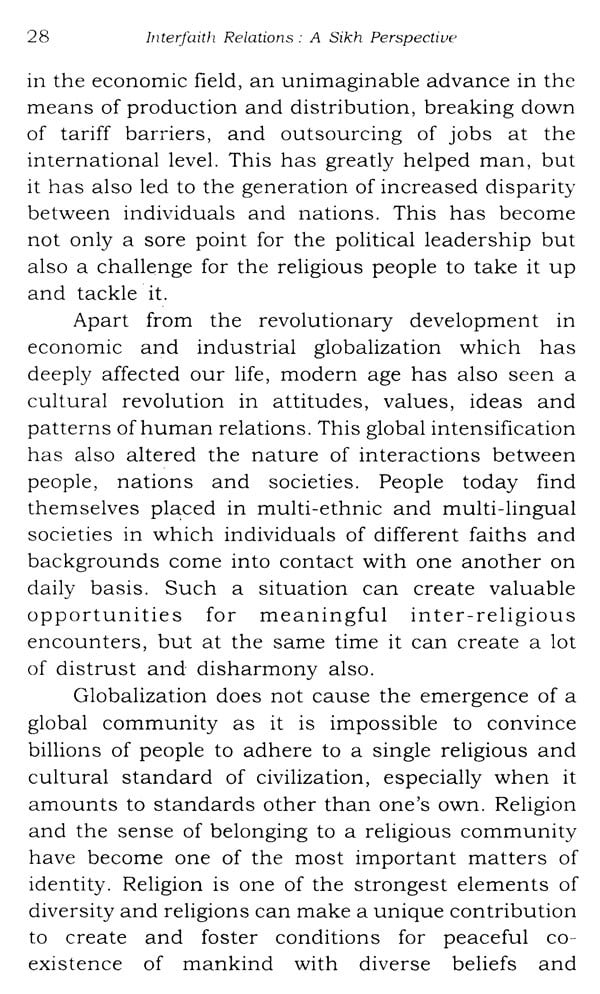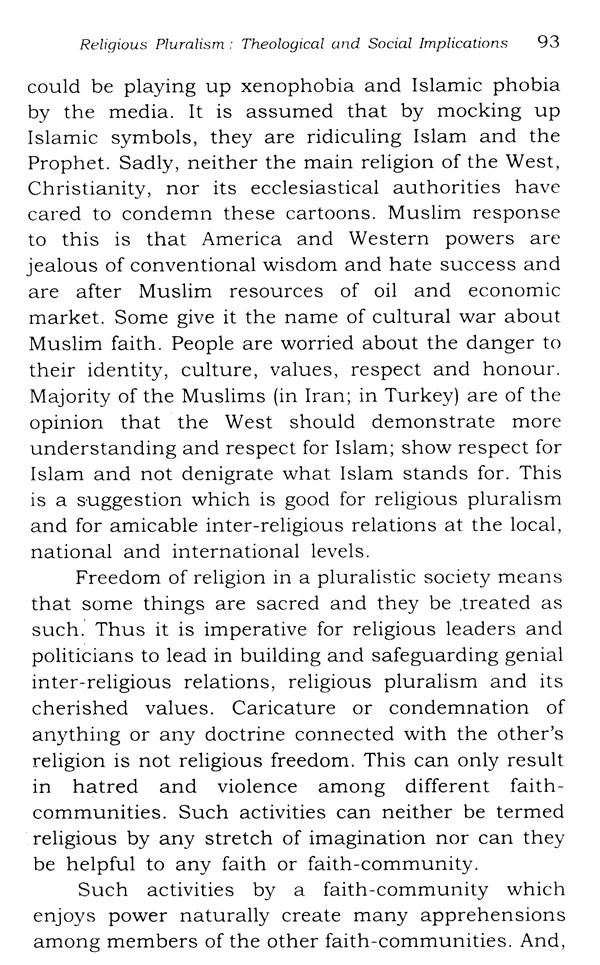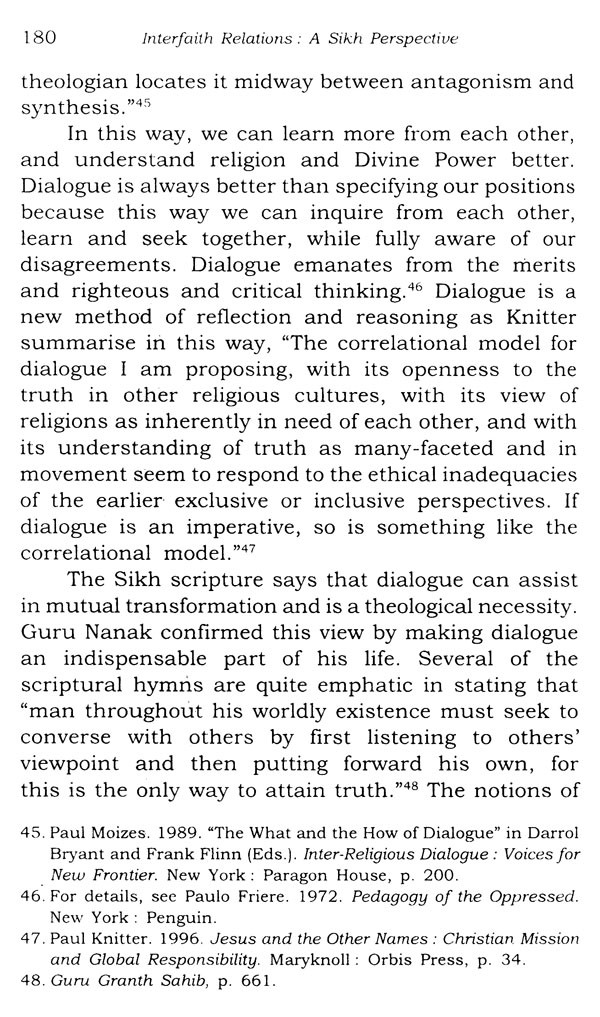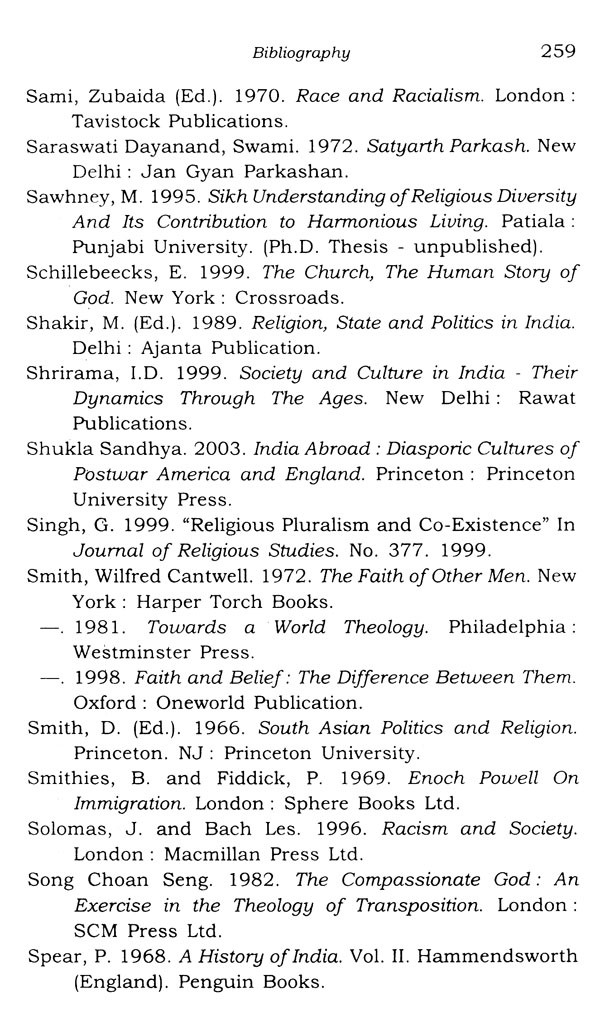
Interfaith Relations- A Sikh Perspective
Book Specification
| Item Code: | UAZ853 |
| Author: | Gurnam Singh Sanghera |
| Publisher: | Singh Brothers, Amritsar |
| Language: | English |
| Edition: | 2008 |
| ISBN: | 8172054157 |
| Pages: | 264 |
| Cover: | HARDCOVER |
| Other Details | 9.00 X 6.00 inch |
| Weight | 430 gm |
Book Description
Scholars and students working in the fields of Sikh and interfaith studies should welcome the book for its contemporary relevance as well as for its easy but impeccable style.
The book begins with the history of inter-religious relations and the shifting paradigms such as exclusivist, inclusive and pluralism. Their shift in the course of recent history has been very well traced in all detail. While the Christian and Islamic exclusivist and Hindu inclusive are rightly criticized, the emerging paradigm of pluralism in the contemporary world is appreciated. The author then goes on to discuss the theological and social implications of religious pluralism. This brings to focus the relation between European colonialism and Christian missionary work and consequently the immanent orient list relationship between the two. Dr. Sanghera names Professor John Hick as the Copernicus in the study of inter-religious relations who proposed that recognition of every faith as authentic was the pre- condition for genuine inter-religious dialogue. Hick also insisted for a paradigm shift from Christ (Christ centrism) to God (Theo centrism). Sociologically, recognition of plurality is a step towards social justice, equality and ethical dialogue.
The global society has gelatinized traditional boundaries between varied faith-communities and nations. We are living in a world/universe which is being coordinated and integrated as a whole. In some cases (such as markets) lines of demarcation are getting blurred but in other cases (such as identity and personal religion) these are being drawn deep. Economies of nations are intertwined and problems. of poverty and environment are becoming global. We need to acknowledge our inter-dependence in this society which will be determined and shaped by co- operation and/or hostility.
**Contents and Sample Pages**

